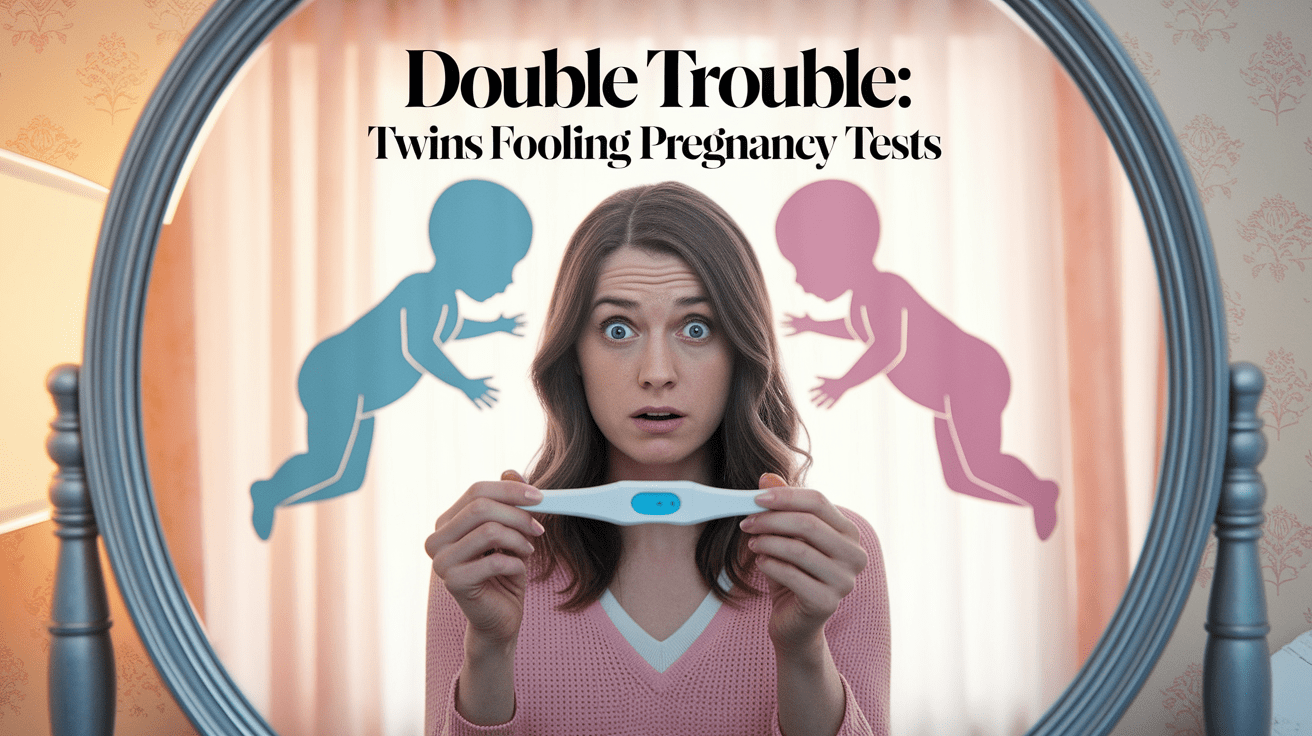
Think you’re pregnant, but the test says no? You might be expecting twins! Pregnancy tests detect hCG, the hormone your body produces when you’re pregnant.
Normally, more hCG means a stronger positive result. But here’s the shocking twist: with twins, your body can produce SO much hCG that it actually overwhelms the test, causing a false negative result.
This counterintuitive phenomenon, called the “hook effect,” is like trying to catch too many fish with a small net—the net breaks and catches nothing at all!
Did you know? About 70% of twin moms report they “just had a feeling” they were carrying multiples before medical confirmation.
Your body might be sending signals that something extraordinary is happening, even when that pregnancy test is telling you otherwise.
How Do Pregnancy Tests Work?
Pregnancy tests function on a remarkably straightforward principle. These simple devices detect the presence of human Chorionic Gonadotropin (hCG), a specific hormone found in urine. This hormone begins production shortly after conception occurs.
You can think of hCG as your body’s natural pregnancy announcement system. It essentially signals to your body that embryonic development has begun.
The hormone serves as a biological messenger, communicating the news of pregnancy to your body’s systems.
The science behind the test is elegantly simple: the higher the concentration of hCG in your urine sample, the more pronounced the test line becomes on your pregnancy test. This visibility mechanism provides a clear visual indicator of pregnancy status.
As hCG levels increase during early pregnancy, the test line typically darkens, offering a visual representation of the hormone’s growing presence in your system.
PRO TIP : Always check the test sensitivity on the box! Some tests can detect pregnancy with very little hCG (like 10 mIU/ml), while others need more (like 25 mIU/ml or higher). The lower the number, the more sensitive the test.
Understanding Pregnancy Tests and Twin Pregnancies
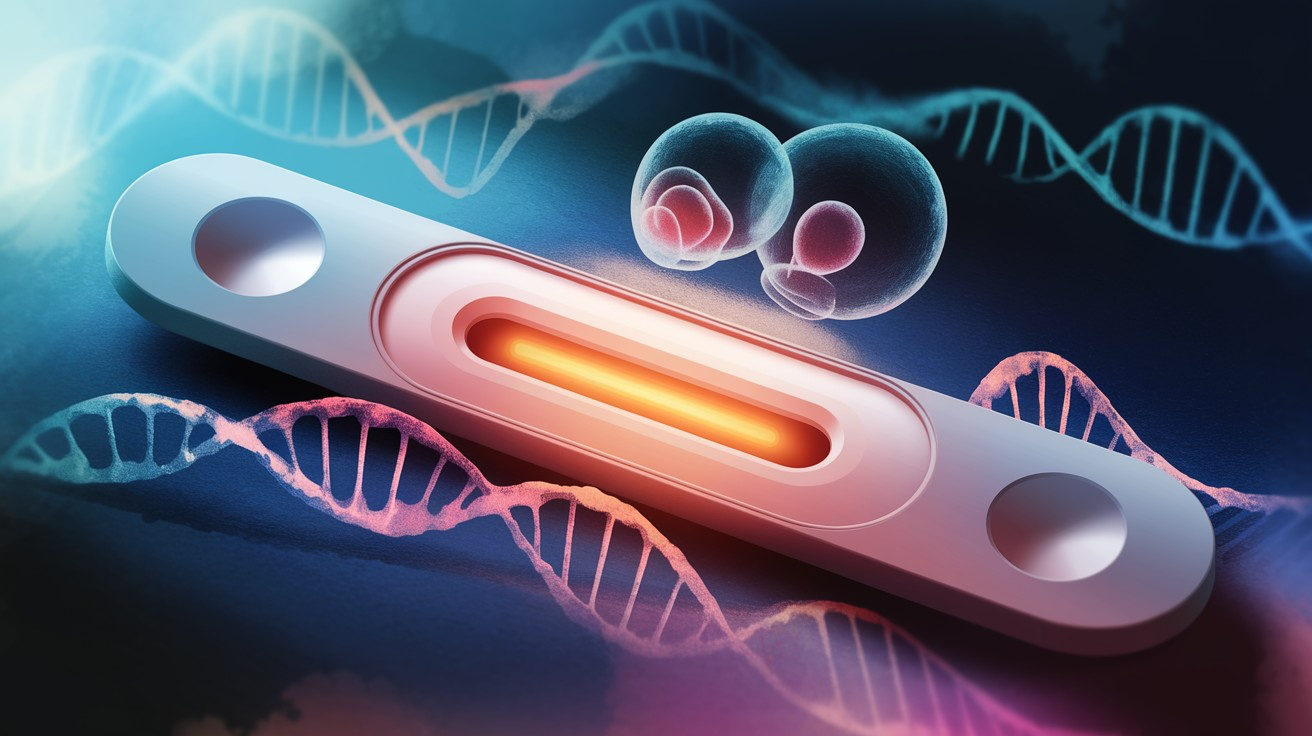
1. How Home Pregnancy Tests Work?
Home pregnancy tests are sticks or strips that have special chemicals on them. When these chemicals meet hCG in your pee, they change color, usually making a line or plus sign appear.
Most tests require you to pee on the stick or dip it in a cup of your urine. Then, you wait a few minutes to see the result. One line means you are not pregnant, and two lines mean you are pregnant!
But wait—did you know that even a very faint second line usually means you’re pregnant? The line doesn’t have to be as dark as the control line to count!
2. hCG Levels in Single vs. Twin Pregnancies
Here’s where things get interesting! If you’re carrying twins, your body often makes MORE hCG than with just one baby.
hCG levels change over time in a single pregnancy. About 10 days after conception, levels reach around 25 mIU/ml. By 4 weeks pregnant, they climb to between 50 and 500 mIU/ml. At 6 weeks pregnant, they soar to 1,000 to 10,000 mIU/ml.
But with twins, these numbers can be much higher! Some twin moms have double or even triple the normal amount.
3. Timeline of hCG Production in Multiple Pregnancies
With twins, your hCG levels rise faster and higher. This usually means you might get a positive test earlier than someone with one baby.
Let’s break it down by weeks: During weeks 3-4, hCG starts showing up in your system. By week 5, those levels are climbing fast. Then, during weeks 6-8, hCG reaches its peak (and this is when things can get tricky!)
BUT WAIT! Higher hCG doesn’t always mean twins. Some women naturally produce more hCG, even with one baby. And some twin pregnancies don’t make that much extra hCG; Bodies are all different!
Signs You Might Be Expecting Twins Despite a Negative Test
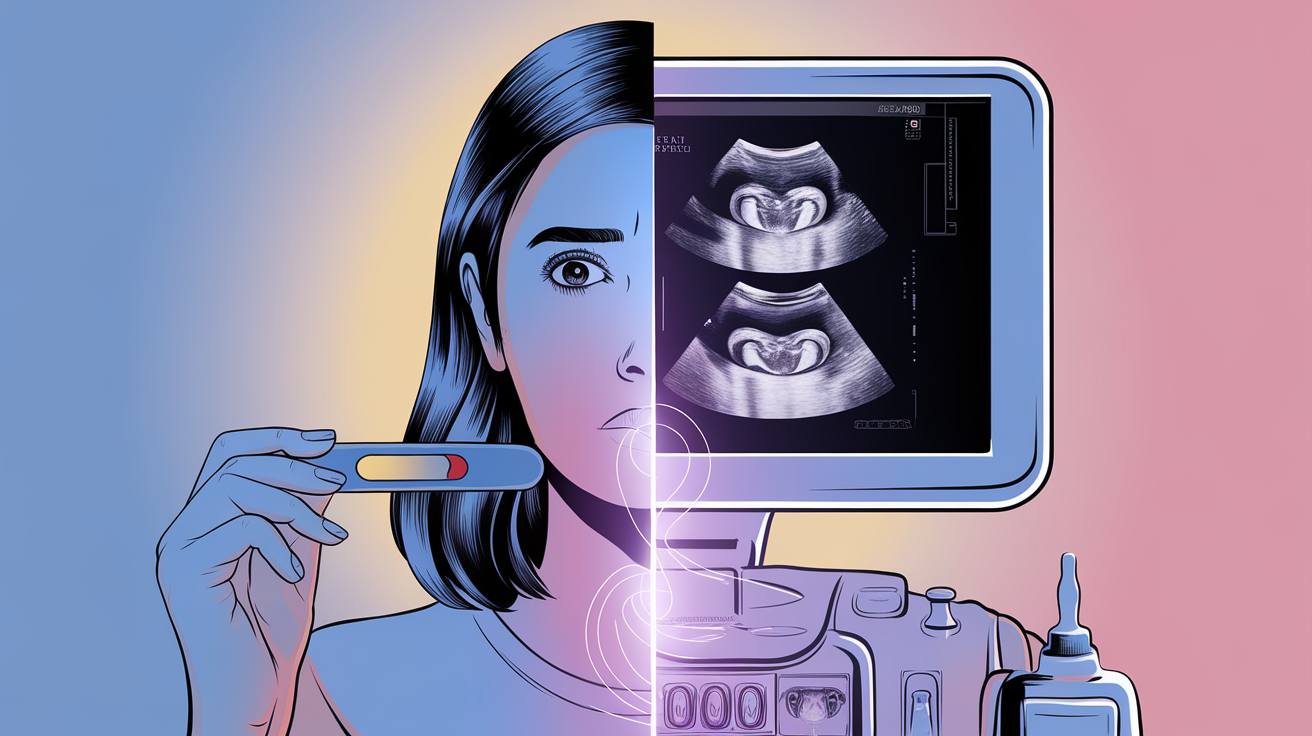
Are you feeling super pregnant, but the test says no? Here are some clues that might mean twins are hiding in there!
1. Physical Symptoms That Suggest Twins
Twin pregnancies often come with extra strong symptoms. You might have really bad morning sickness where you’re throwing up more than seems normal.
Many twin moms report feeling extremely tired – we’re talking can’t-keep-your-eyes-open exhausted. Your breasts might feel very sore, more than you’d expect.
You could notice your belly growing bigger sooner than your friends who were pregnant with just one baby. And you might feel movement earlier, sometimes before 16 weeks, when single-baby moms usually don’t feel anything yet.
Did you know? About 70% of twin moms say they “just had a feeling” they were having twins even before their doctor confirmed it!
2. When to Retest After a Negative Result
Have you had a negative test but still think you’re pregnant with twins? Don’t give up! Wait 2-3 days and test again, preferably first thing in the morning when your pee has the most hCG. Your levels double every 48-72 hours in early pregnancy.
Consider using a more sensitive pregnancy test that can detect lower levels of hCG, as some brands can identify pregnancy earlier than others.
If you’re experiencing pregnancy symptoms despite negative results, consult your healthcare provider about a blood test, which can detect even smaller amounts of hCG than urine tests.
PRO TIP: If you suspect twins, try testing with different brands of pregnancy tests. Some brands work better for detecting the high hCG levels that can cause problems with testing.
3. Family History and Other Twin Risk Factors
You might be more likely to have twins if twins run in your mom’s family (funny enough, the dad’s side doesn’t affect it!). Women over 35 have higher chances, too.
If you’ve had fertility treatments, your odds go up considerably. Being taller or heavier than average somehow increases your chances. Having been pregnant before raises your twin possibility. Women of African descent have the highest twin rates worldwide!
Surprise! Did you know that women who eat more dairy products might have a higher chance of having twins? Weird but true!
Can Twin Pregnancies Cause False Negative Results?
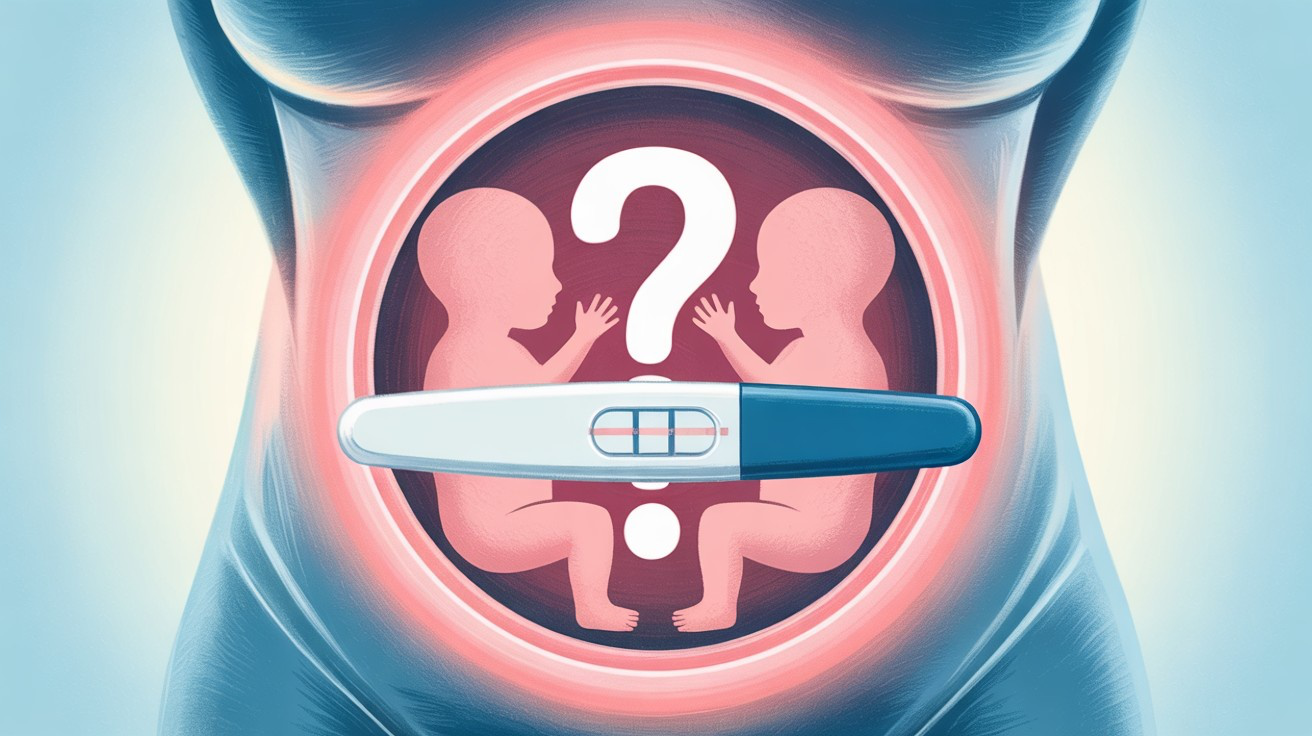
Yes! This is the strange part—sometimes having TOO MUCH pregnancy hormone can make the test say you’re NOT pregnant!
1. The Hook Effect Explained
The “hook effect” sounds made-up, but it’s real science! Too much hCG can overwhelm the test.
Imagine you’re trying to catch fish with a net. A few fish? No problem! But dump a thousand fish on the net all at once? The net breaks, and you catch nothing!
That’s what happens with the test—too much hCG “breaks” the test chemicals, and they can’t work properly.
2. Timing Considerations for Twin Pregnancies
The hook effect usually happens between 6-8 weeks of pregnancy, when hCG levels are at their highest. By this time, most women with a single baby would have a strong positive test. If you’re having twins and test during this window, you might get a negative result or a very faint line that looks wrong.
3. Dilution Methods to Prevent False Negatives
Proper dilution methods are critical when performing sensitive assays to avoid false negatives. Serial dilutions in appropriate buffers help maintain optimal sample concentration, while standardizing dilution protocols across all specimens ensures consistent and reliable test results.
How twins could cause a false negative pregnancy test
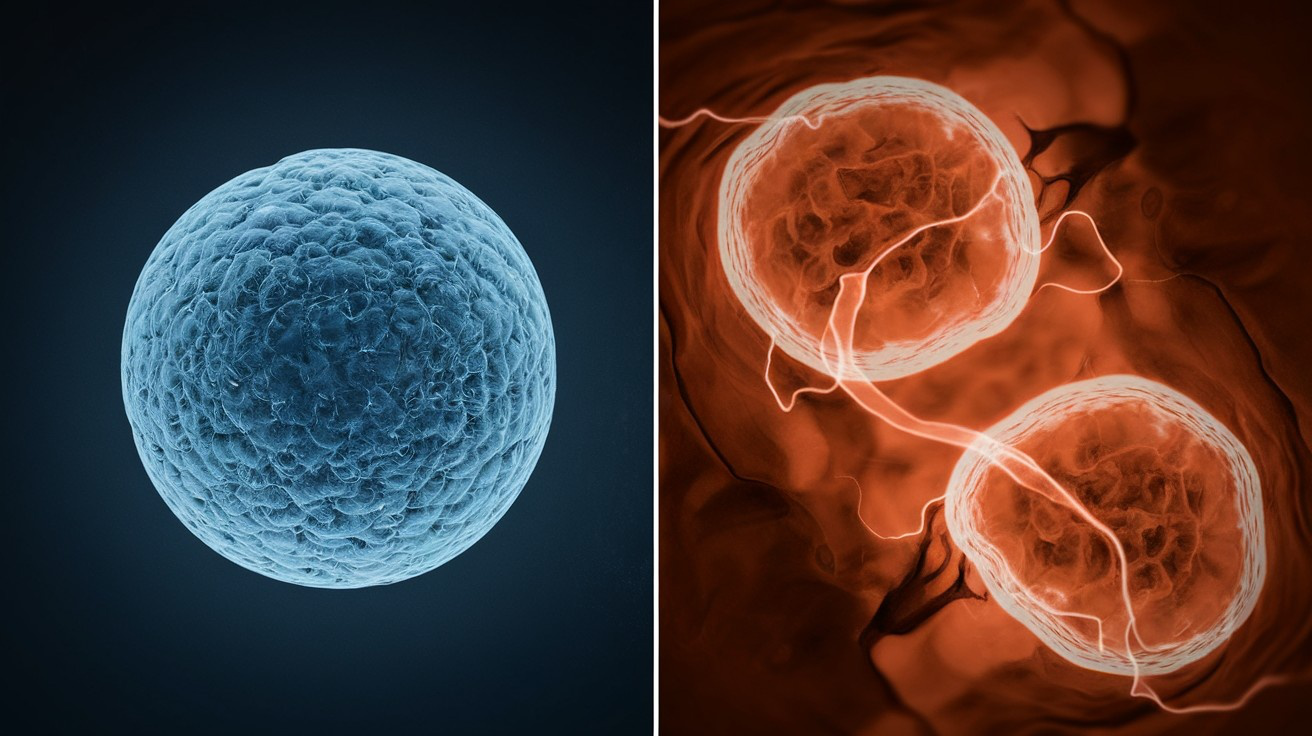
Twin pregnancies can surprisingly trick pregnancy tests. Here’s what happens: When you’re carrying twins, your body often produces much more hCG hormone than with just one baby. This seems like it would make the test more positive, not less. But too much of anything can cause problems!
When extremely high levels of hCG flood the test, the test chemicals get overwhelmed. Scientists call this the “hook effect.” Imagine trying to catch fish with a small net.
A few fish? No problem! But dump hundreds of fish on the net at once? The net breaks and catches nothing.
That’s exactly what happens with your pregnancy test. The test is designed to handle normal hCG levels, but twin-level hCG can be so high that it “breaks” the test’s ability to detect it properly.
This usually happens between 6-8 weeks when hCG is highest. The solution? Dilute your urine with water before testing. This brings the hCG down to levels the test can handle, potentially revealing those twins hiding in ther
When to See a Healthcare Provider
Consult a healthcare provider if you’re experiencing persistent pregnancy symptoms despite negative tests or if you’re worried about the possibility of twins. Seek medical evaluation when home tests don’t match your physical symptoms, as blood work and ultrasounds provide more definitive answers.
1. Persistent Pregnancy Symptoms Despite Negative Tests
If you have negative tests but still experience missed periods, ongoing nausea and vomiting, extreme tiredness that won’t go away, unusually tender breasts, and that constant need to pee all the time, it’s time to call your doctor. Trust your body! Sometimes, it knows before the tests do.
2. Confirming Twin Pregnancies Through Other Methods
Only a doctor can tell for sure if you’re having twins. They might:
- Do a blood test for hCG (more accurate than pee tests)
- Perform an ultrasound (can see twins as early as 6 weeks!)
- Check your symptoms and medical history
3. Next Steps After Suspecting a False Negative
What should you do if you suspect a false negative? First, call your doctor and carefully explain all your symptoms. Make sure to mention if twins run in your family during this conversation. While talking with them, ask about getting blood tests for pregnancy since they’re more accurate than urine tests. You might also want to request an early ultrasound, if possible, to check for multiple pregnancies.
PRO TIP: Keep a symptom diary to show your doctor. Write down how you feel each day, especially anything that seems stronger than a normal pregnancy would cause.
Other Causes of False Negative Pregnancy Tests
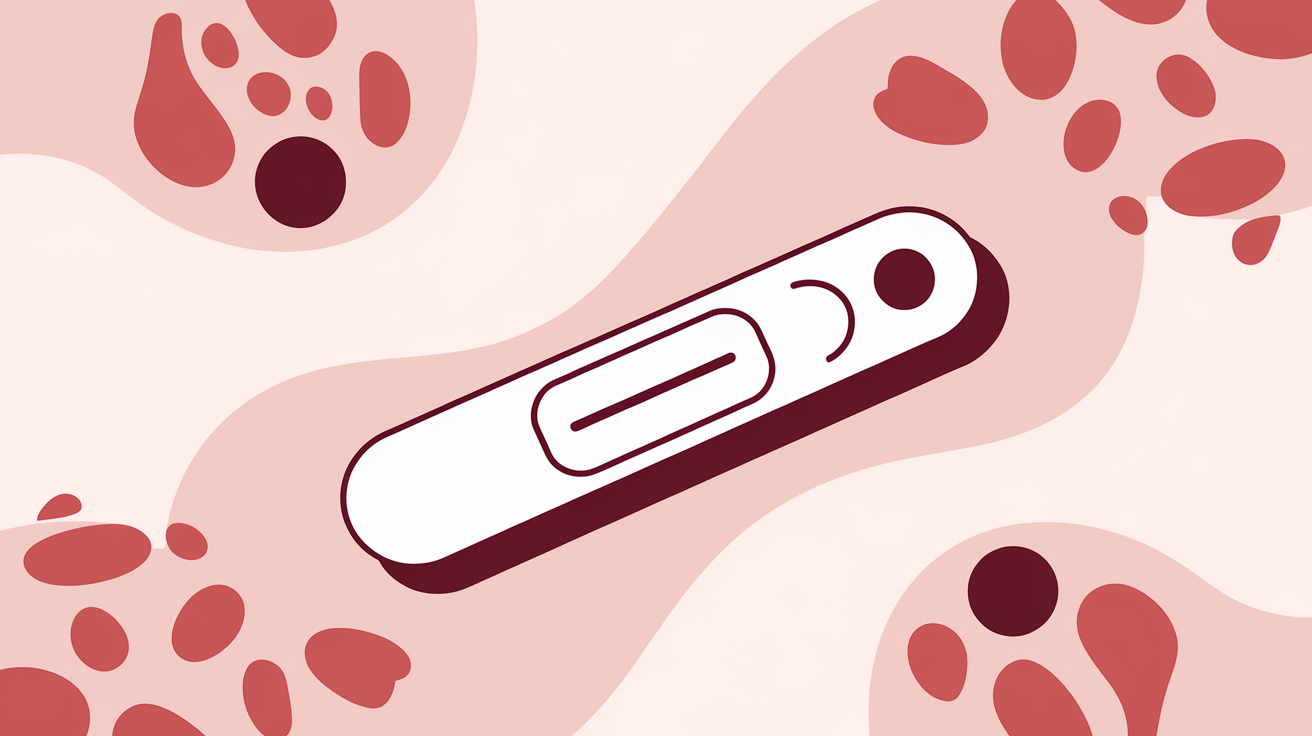
Twins aren’t the only reason for false negatives! Here are other common causes:
1. Testing Too Early in Any Pregnancy
Patience is hard, but testing too early (before your missed period) often gives false negatives. The egg might be fertilized but not making enough hCG yet.
Did you know? It takes 6-12 days after fertilization for the embryo to implant in your uterus, and only THEN does hCG production start!
2. Expired or Faulty Test Kits
Check those dates! An old test might not work right. Also, tests can go bad if they get too hot or too cold. Don’t store them in your bathroom—it’s too humid! Sometimes, tests fail. It happens to about one in every 100 tests.
3. Comparing Different Pregnancy Test Brands and Sensitivities
Not all tests are created equal! Expensive doesn’t always mean better.
Tests with sensitivity of 10-15 mIU/ml can detect pregnancy earlier than those needing 25-50 mIU/ml. Digital tests are easier to read but are sometimes less sensitive than the line tests.
Wait—is your pee too diluted? Drinking tons of water before testing can make hCG too weak to detect. Morning pee is usually best for testing!
Wrapping It Up
When it comes to twin pregnancies and pregnancy tests, the science is fascinatingly complex. While twins typically produce more hCG than single pregnancies, this abundance can irrationally cause false negative results through the hook effect, especially between 6-8 weeks when hormone levels peak.
If you suspect twins despite negative tests, consider diluting your urine before testing, checking for heightened pregnancy symptoms, and consulting your healthcare provider for blood tests or an ultrasound.
Remember that other factors can also cause false negatives, such as testing too early, using expired kits, or having diluted urine.
Trust your body’s signals—extreme fatigue, severe morning sickness, or faster-growing belly might be clues that twins are on the way.
Ultimately, only medical professionals can confirm a twin pregnancy, but understanding these testing quirks might help you uncover your double blessing sooner.
If you’re interested in more informational content on mothers and babies, feel free to click here and research other blogs that you might enjoy.

